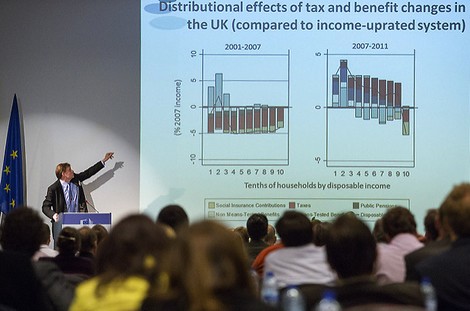Your podcast discovery platform
Curious minds select the most fascinating podcasts from around the world. Discover hand-piqd audio recommendations on your favorite topics.

piqer for: Boom and bust Globalization and politics Global finds
Associate Professor of Economics at George Mason University and currently a National Fellow at the Hoover Institution, Stanford. Educated at Oxford, Mark's main interests lie in economic history and comparative development. He is currently writing a book (with Noel Johnson) on the origins of religious freedom in western Europe. He has also published papers on state formation in Europe and China, weather shocks and pogroms in the middle ages, and private policing in 19th century England. More details about his research can be found on his webpage. He also blogs at Medium and Notes on Liberty.
In Defence Of Economists
In this piece, Diane Coyle lays down a defense of economics. Responding to a wide-ranging critique of the entire field of economics by Howard Reed, Coyne defends economics as it is currently practiced by economists. She highlights the wide range of areas of study to which economists have recently made important contributions.
Far from being enthralled by mathematical models or notions of ideological purity, Coyle discusses the practical and often empirical work that most active researchers spend their time on. She briefly discusses research on sugar taxes and obesity, on which jobs are threatened by automation, as well as historical work by David Donaldson (the 2017 John Bates Clark awardee) on the economic impact of railways in colonial India. She could have mentioned dozens, if not hundreds, of similarly interesting and ingenious research papers, few of which conform to Reed's notions of what economists do.
Economists are mostly not macroeconomic forecasters. The accusation that the Financial Crisis of 2008 means that the entire profession needs to rethink their methods and approach is thus misguided. Macroeconomics, and particularly topics such as the intersection between finance and monetary policy, clearly do need to respond to the crisis. But macroeconomics is inherently difficult. On the one hand, there is a theoretical challenge: the economy is extremely complex and has to be simplified in order to be understood. On the other hand, there is an empirical challenge: major global recessions are very rare events and hence we lack the data required to employ the kinds of empirical tools that have proven so successful elsewhere in economics.
Coyle's point is that we should criticize economics and economists for the mistakes or omissions that they do make rather than repeating charges that are either out of date or irrelevant.
Stay up to date – with a newsletter from your channel on Boom and bust.
